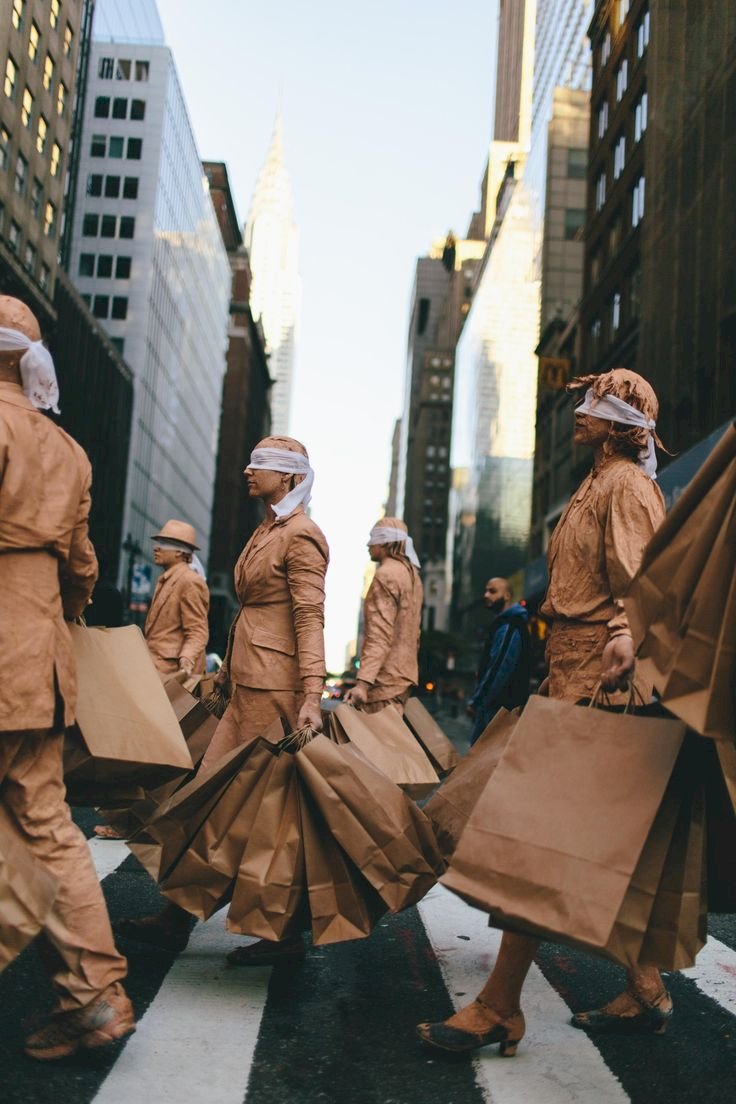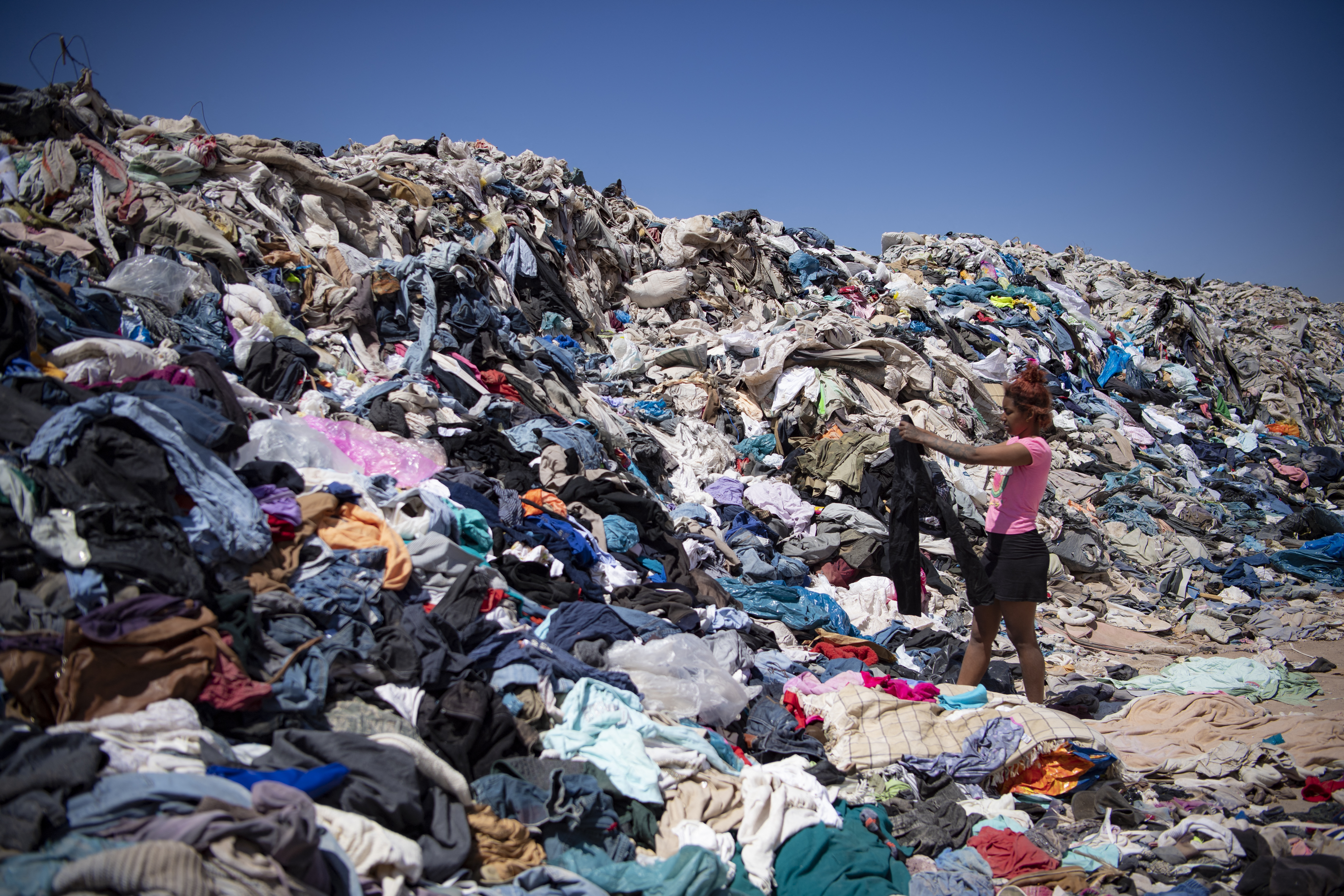Beauty Beyond Excess: How Overconsumption Is Shaping the Cosmetics Market
Hey, this is Yuri! This time I'm here with a different topic, yet a crucial one. Undoubtedly, Fast Fashion has become a popular subject, and this blog would be sharing many aspects linked to it. In this blog, I'll throw light onto how overconsumption is fueling the destruction of our planet, exploiting workers, and making us slaves to certain standards over the internet. We don't need to buy new clothes, new skin care/hair care products every single week. The outfit you wore last time is good enough. You don't need to overwhelm yourself with numbers, you JUST need to do what works the BEST for you: what is needed, and not what you desire. And this exactly what we're gonna discuss!

While it is true that the Fashion Industry is growing at an exponential rate, many would see this as an opportunity for increasing employment among the poors and the emergence of better products in the market.
But this story wear multiple facades, and I am here to help you explore them, like ah, Dora: The Explorer!
The purpose of this blog is obviously not to praise the industry of its achievements, but to list all the downsides that come along with it.
Yes, the industry has grown rapidly.
But, at what cost?
...
Ever wondered why fast fashion produces are cheap?
Not because it was supposed to be affordable for everyone, no! The people in this industry are certainly not here for charity!
It's because the workers are paid, low, very low wages- and those in authority gobble up the profits, most of which is highly undeserving.
It's just one, single issue that comes with fast fashion- the unscrupulous acts imposed on the poor, innocent workers.
Many more issues to unravel, readers!!
- Exploitation of Workers
Many fast fashion items are priced low, making it seem affordable and worthy of purchase, but the true costs will remain hidden from common people. Labours are exploited, the environment is degraded in the process and huge profits never reach the hands of those highly deserving. The incomes of the workers are very low despite their hours of hard labour.
According to the data provided by International Labour Organisation, more than 170 million children worldwide are involved in child labor, many of them working in textile factories. These workers work in hazardous conditions, often working up to 16-hours per day for minimal pay, with little to no labor rights protections.
You know, it's very, very sad that in developing nations like Bangladesh, Cambodia, and in my very own country, India, where factories are often subject to corruption and unregulated practices, these practices are even more prevalent.
It is very common to find these helpless workers deprived of their basic human rights.
And, this is not the end of it.
From a 2018 report by the Ellen MacArthur Foundation, titled "A New Textiles Economy: Redesigning Fashion's Future", the fashion industry is responsible for about 10% of global carbon emissions—more than international flights and maritime shipping combined. How barbaric is that!
2. Impact on the Environment
The fashion industry is one of the largest consumers of water globally. Cotton farming, for example, requires vast amounts of water, with approximately 2,700 liters needed to produce a single cotton T-shirt. Dyeing and washing fabrics also consume enormous quantities of water, often with minimal treatment, leading to pollution.
And obviously, water pollution doesn't put a full stop here! The production of clothing requires significant amounts of energy, from extracting raw materials to manufacturing and transportation. Much of this energy comes from fossil fuels, contributing to greenhouse gas emissions.

This is a massive landfill in the Atacama Desert, filled with old clothes from around the world. And it's insane because the landfill is so large that it can be seen from space. What breaks my heart is that most of these clothes are in a really good condition, but somehow they ended up here, as in a dumping ground.
Many fast fashion items are made from synthetic fibers like polyester, which take hundreds of years to degrade in landfills, adding to the long-term environmental burden.
This is literally what we call, land degradation!
.
.
.
Let's talk more about Fast Fashion because that's what we're here for, mainly.
Fast Fashion is both an ideology and a practice, since it promotes the idea of constantly releasing new collections and making the consumers feel the need of purchasing more and more items (be it clothes or even products for hair care, skin care, etc).
Consumerism, an ideology that encourages the buying of goods and services in ever-increasing amounts. It's some kind of a FOMO, because the belief suggests that personal happiness and social well-being can be achieved through the continuous purchase of material goods, often beyond basic needs.
It literally shoves this thought inside you, that if you don't buy this specific item, you won't ever be happy, and you will further miss out on all good things in life. As mentioned before, this is very similar to FOMO, where a person is constantly trying to fit in with new trends in order to not miss out meanwhile depriving themselves of "true happiness and fullfilment".
While consumerism can drive economic growth, it can lead to environmental degradation, overconsumption, waste, and a focus on materialism over other values, such as sustainability or well-being.
- How are people influenced then?
- Why do people feel the need to fit in to these baseless trends?
- Influencers/Advertising
Oh yes, sure these influencers know how to create these visually, tempting reels, creating a pseudo need of purschasing the items we see on a mere 2-dimensional screen. Sometimes, these products are so useless but the aesthetics and the overall mood try to lure you into their trap.
Seeing influencers and your favorite celebrities create a sense of social pressure to buy similar clothing in order to fit in or appear stylish.
Brands use aggressive marketing strategies, often targeting young people through social media platforms like Instagram, YouTube, etc. showcasing the latest trends and making it seem essential to own these styles to fit in.
- Cheap Prices
One of the key strategies of fast fashion is offering cheap clothing, making it easy for consumers to buy items frequently without worrying about the cost. This accessibility leads to a "buy more, spend less" mentality, where people feel they can refresh their wardrobe without guilt.
Nowadays, shopping does not even require you to step out of your house- Just one swipe away, and there, your order placed! There's literally nothing stopping you to buy but your own mentality.
This ease in affordability and accessibility often leads to impulsive buying habits.

- Psychological Triggers
Like I mentioned before, FOMO is real and many people already have it without them knowing. Tactics like making consumers afraid of missing out on the latest trend or a limited-time sale. This fear drives people to make quick, sometimes unnecessary purchases. This offers a quick sense of reward or happiness. People often experience a temporary emotional boost from buying new clothes, which reinforces the cycle of purchasing.
For many, fashion is a way to express identity, and fast fashion brands capitalize on this by offering a quick and affordable way to showcase one's personal style. Keeping up with trends or wearing fashionable clothes can also give people a sense of belonging or higher social status.

Stopping ourselves from participating in fast fashion on an individual level requires a conscious shift in mindset and shopping habits. Here are some steps that can help you practice slow fashion more effectively:
- Buy Less, Choose Wisely: Before purchasing, ask yourself if you really need it. Consider whether it will add value to your wardrobe, and if it’s versatile enough to wear in multiple outfits. Avoid impulse buys or buying just because something is on sale.
- Invest in Quality: Focus on buying higher-quality, durable pieces that will last longer.
- Choose Sustainable Brands: Support brands that prioritize sustainability, ethical production practices, and use eco-friendly materials. Look for certifications like Fair Trade, GOTS (Global Organic Textile Standard), or B Corp, which indicate that brands are committed to sustainability.
- Proper Care and Maintenance: Take better care of your clothes to extend their lifespan. Follow care instructions (washing, drying, and ironing) to prevent premature wear and tear. Repair damaged clothes instead of discarding them—simple sewing or patching can extend the life of a garment.
- Shift Your Priorities: Reflect on what truly brings you happiness. If fashion isn’t a top priority, focusing on other values like experiences, hobbies, or sustainability can help you feel less compelled to constantly shop.
So, in today's blog we covered the impacts of Fast Fashion, the why's and how's, and in last; how to stop ourselves from buying things mindlessly.
Writing this blog was not an easy task, because I had done an immense amount of research work before posting this, reading about these topics from websites to websites. Not only this increased my knowledge, I myself have become much more mindful about sustainability.
Sustainability is not just about reducing fast fashion- it's a lifestyle everyone should adopt! Sustainability CAN BE ABOUT ANYTHING AND EVERYTHING! Start small, but at least start :)
That was it for today, my sunshines and daisies haha ;0
Logging off, and see ya soon!












